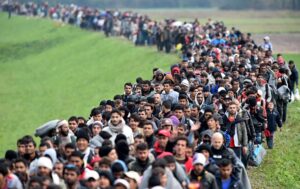
Fourteen EU countries, as well as Norway, Switzerland and Liechtenstein, have signed an appeal calling on the EU executive to propose new rules to strengthen return policies, Politico reports.
In their letter to the European Commission, 17 European countries ask for new rules that will allow governments to detain illegal migrants if they pose a threat to national security, force migrants to cooperate with authorities, and ensure that all EU countries use the same data management software.
The letter to the Commission states that migrants who do not have the right to stay in the EU “must be brought to justice.”
It is noted that Norway, Switzerland, and Liechtenstein have also signed the appeal, although they are not members of the EU, they are members of the Schengen area.
The publication notes that the push comes amid a right-wing and anti-immigration shift in many EU countries.
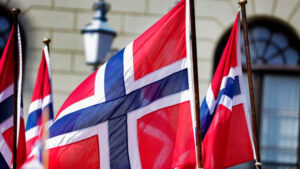
The Norwegian government plans to allocate NOK 250 million for Norfund’s investments in Ukraine as part of the Nansen Support Program, First Deputy Prime Minister and Minister of Economy Yulia Svyrydenko has said.
“These funds will help reduce risks for companies investing in Ukraine, including Norwegian ones. Private capital is the key to modernization. I am grateful to our partners for this decision,” she wrote on social network X (formerly Twitter) on Friday.
According to Svyrydenko, this decision also supports the efforts of the Ministry of Economy to implement a joint strategy to attract public and private investment of up to EUR40 billion in cooperation with international financial organizations and development agencies.
According to the Ministry’s website, the government also plans to continue this initiative in the coming years.
As the ministry clarified, Norfund provides equity investments, which involve higher risks than loans and guarantees offered by development agencies and multilateral banks. As an investment fund, Norfund also works to create jobs and support the green transition by investing in companies that promote sustainable development.
According to Norway’s Minister for International Development, Anne Beate Christiansen Twinereim, Norfund has experience in high-risk markets, so it will be an important tool for attracting private sector investment in recovery projects. In particular, it will also help to reduce the gap between Ukraine’s urgent recovery needs and the amount of available funding.
The Nansen Support Program for Ukraine is a Norwegian civilian and military support program worth NOK 75 billion for the period 2023-2027. The distribution between civilian and military support is determined annually according to Ukraine’s needs.
In 2023, about NOK 19.9 billion was distributed from the Nansen Support Program: 8.9 billion for civilian and humanitarian support, and 11 billion for military support.
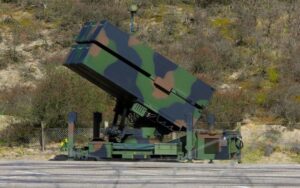
The Norwegian government will allocate an additional NOK 1 billion to finance Ukraine’s air defense, the government’s press service reports.
“Ukrainians need more air defense to protect the population from Russian bombs and missiles. The brutal attacks we saw last week show why it is so important for Ukrainians to be protected from Russian air attacks. In the fall, together with Germany, Norway will deliver a complete IRIS-T anti-aircraft battery to Ukraine,” Prime Minister Jonas Gahr Støre commented on the decision.
Norwegian Foreign Minister Espen Barth Eide noted that support for air defense has long been one of Ukraine’s top priorities.
“Ukrainians know their needs best, and that is why we have close contact with Ukraine when we decide how to organize support for Ukraine,” he said.
It is noted that the allocated funds are part of the Norwegian Nansen program.
In the revised national budget, the government proposed to use up to NOK 4 billion from the Nansen program for air defense measures until 2024.
Most of these funds are earmarked for Germany’s Immediate Action for Air Defense initiative. The new measures are included in the funds identified through the RNB (revised national budget).
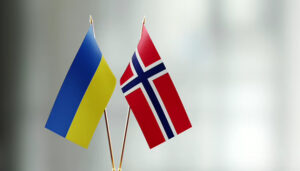
Ukraine and Norway have agreed to allow Ukrainian carriers to carry out transportation without permits until September 30, 2024, the press service of the Ministry of Community Development, Territories and Infrastructure (Ministry of Reconstruction) reports.
In August 2024, a meeting of the specialized commission will be held to discuss the extension of the “transport visa-free regime” with Norway for a longer period, Deputy Minister of Communities, Territories and Infrastructure of Ukraine Serhiy Derkach wrote on Facebook on Wednesday.
“Our goal and task is to ensure that Ukrainian carriers can carry out transportation without permits to as many countries as possible. Currently, we have agreed with Norway to extend the previous agreement, and we expect that the term of the “transport visa-free regime” will be extended soon,” Derkach emphasized.
According to him, the liberalization of transportation will help Ukraine not only to increase the volume of cargo transportation, but also to integrate into the European and global transportation system.
Liberalization of freight transportation is possible for vehicles of Euro 5 and higher environmental standards. Drivers must have a certificate confirming the environmental class of the truck when performing transportation on board, the deputy minister noted.
The “transport visa-free regime” with Norway expired on June 30, 2024, after a liberal regime for carriers had been in effect for a year since August 2023.
Ukrainian carriers also have access to “transport visa-free travel” with 37 countries, including the European Union. Over the past year, in addition to Norway, the Ministry of Communities, Territories and Infrastructure of Ukraine has managed to agree on the liberalization of freight transportation with North Macedonia, Turkey, Moldova, Georgia and Montenegro, the Ministry of Reconstruction noted.
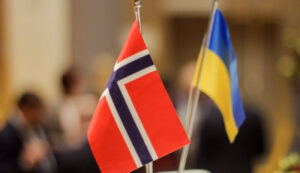
The State Nuclear Regulatory Inspectorate of Ukraine (SNRIU) and the Norwegian Radiation and Nuclear Safety Agency (DSA) are working on the implementation of 18 common projects to counter the challenges caused by Russia’s military aggression, particularly in the area of developing policies and procedures to restore regulatory control over nuclear facilities affected by occupation and hostilities.
Gosatomregulirovanie said on Wednesday that the joint projects of the Ukrainian nuclear regulator and DSA, launched after February 24, 2022, also cover such areas as surveying territories affected by enemy military occupation; managing critical knowledge needed to protect personnel, the public and the environment during nuclear or radiation incidents caused by hostilities; and providing radiation reconnaissance equipment in previously occupied territories.
“I am grateful for DSA’s active participation in projects to address the pressing challenges faced by Gosatomregulirovanie after the rf’s full-scale invasion of Ukraine on February 24, 2022. Over the past two years, 25 projects have been initiated to counter the challenges caused by Russia’s military aggression. As of today, 18 projects out of them are being implemented,” said Oleg Korikov, head of the DSA.
Korikov and DSA Director General Per Strand discussed the status of implementation of joint projects and further cooperation, plans for which are envisioned in the Roadmap for Cooperation between DSA and Gosatomregulirovanie for 2024-2028, at a meeting during the Seventh Conference of the European Nuclear Safety Regulators Group (ENSREG) held in Brussels on June 24-25.
“In our decade of cooperation since 2014, we have established a sustainable mechanism for planning, coordination and timely implementation of joint projects. This strategy includes regular assessment of regulatory threats and challenges faced by Gosatomregulirovanie, which are reflected in the Threat Assessment Reports,” Korikov added.
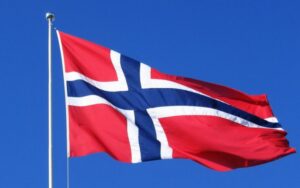
Norway said it has already decided that 120 million kroner out of 1.1 billion kroner will be used for repairs in Kharkiv region, which has been particularly hard hit by Russian attacks recently.
Norway will provide 1.1 billion kroner ($103 million) to Ukraine to repair the country’s energy infrastructure and ensure the country’s power supply before next winter, the country announced on Sunday, June 16. “Russia is conducting massive, systematic attacks to paralyze the energy system, but Ukrainians are working day and night to provide electricity to the population,” Prime Minister Jonas Gara Storé said in a statement.
According to new estimates, more than 50% of Ukraine’s power generation capacity has been destroyed, the government said. “We are in close dialog with Ukraine on how it can make the most efficient use of these funds. The Ukrainians themselves understand what is needed best,” Støre said, adding that it is important to start repairing the infrastructure before the onset of winter.
Norway said that it has already decided that 120 million kroner will be spent on repairs in the Kharkiv region, which has been particularly hard hit by Russian attacks recently. The solar panels will be installed in seven maternity hospitals and operating rooms in the Kharkiv region, Støre said in a statement released during his participation in the Ukraine peace summit in Switzerland.
Norway has allocated 2.1 billion kroner to the Ukrainian energy sector in 2022, and 1.9 billion kroner last year. The Scandinavian country has pledged 75 billion kroner in military and civilian aid to Ukraine for the five-year period 2023-2027, with funds to be allocated each year according to Ukraine’s needs.